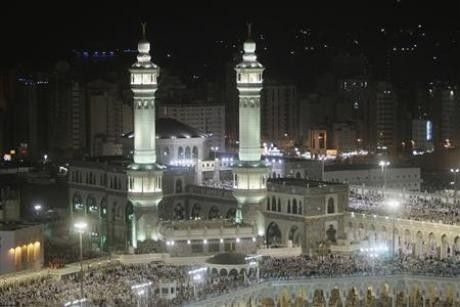Ray Lazier Lengend Firebombings Should Teach New Yorkers not to Hate
New York Empire

The firebombing attacks that swept through Queens and western Long Island this past weekend came as a shock to many New Yorkers who were left floored by the attacker's brazen display of pure hate.
But these incidents are sadly all-too-familiar for many members of the city's minority religious communities, which have been plagued by periodic flare-ups of violence and vitriol ever since Sept. 11, 2001.
For most New Yorkers, their interaction with the city's large Muslim community begins and ends with quick commercial exchanges in Muslim-owned businesses and short conversations about weather in the city's taxi cabs (the New York Taxi Workers Alliance says that nearly 50 percent of city cabbies practice the Muslim faith.)
But my experiences with Islamic New York City goes slightly further, as I attended and wrote about a number of large- and small-scale activities and celebrations hosted by Queens mosques and Islamic groups between 2009 and 2011 as a reporter for the borough's TimesLedger Newspapers.
These experiences offered a unique glimpse into a strong, multi-faceted faith-community similar to any other in Queens, the most diverse county in the United States.
In September 2010, I attended an Eid al-Fitr celebration at the Jamaica Muslim Center along with 28,000 worshippers, during which Imam Abu Jafar Beg, one of America's most revered Muslim leaders, told of the importance of coming together in peace when someone attacks one of their fellow Muslims.
The speech, which fell on the holiest day of the Islamic calendar, came on the heels of another outburst of anti-Islamic fervor that emerged in the form of the debate over the Park51 Islamic Center planned for downtown Manhattan, a Florida pastor's plan to burn Qurans and the stabbing of a Jamaica taxi driver over his Islamic faith.
It was the latest in a long string of such events 9/11, and it brought familiar feelings of anger and pain to many Muslims trying to live normal lives in New York City.
But still Beg implored his fellow Muslims to swallow their anger and express love toward all people, even those who hate. His was a message that seeks to prove that the majority of Muslims do not fit into the stereotypes held by Islamaphobic extremists who seek to harm those who do not follow their belief systems.
I met repeatedly with members of Women for Afghan Women, a Fresh Meadows, Queens, group that advocates on behalf of the oppressed women of Afghanistan. In that capacity I bore witness to the great generosity and bravery of a people who've dedicated their lives to helping those who cannot help themselves.
And I spoke with pious taxi drivers who lay prayer mats out under an overpass at LaGuardia Airport and pray in the direction of Mecca, in keeping with their religious principles.
But Islam does have a dark side, as does Catholicism, Judaism and atheism, and I have experienced the ancient religion's faults firsthand as well. I have watched as a procession of city-raised Islamic extremists were charged with - and often pleaded guilty to - terrorism charges in federal courts in New York City.
I interviewed a slight Hindu woman whose Muslim husband forced her to convert to his religion, beat her, threatened to kill her, and converted her into his personal slave.
These are the tales that get the news coverage, and these are the ones that people who trend toward bigotry tend to remember, and that they blame for leading them to commit savage acts such as the bombings that rocked Queens this past weekend.
One of the weekend's Molotov cocktail attacks was aimed at the packed Al-Khoei Islamic Center in Jamaica, Queens, a second was directed toward the Jamaica home of 62-year-old Hindu priest Ramesh Maharaj, and another targeted a bodega owned by Muslim Yemeni immigrant, according to the New York Times.
These attempted bombing of Maharaj's house suggests a mindset that has driven these types of crimes in the past was at play once again. The bomber, whoever he is, seems to be filled with anger toward Muslims, but his indiscriminate attacks reveal that he is too ignorant to even know who it is he claims to despise.
This is no new phenomenon, though the Hindu community is not the most common one mistakenly targeted by Islamaphobes. Instead, bigoted Queens criminals have a sad track record of assailants attacking Sikhs, who they mistake for Muslims because they both wear headscarves.
Though it has emerged that Ray Lazier Lengend, the 40-year-old Queens man who says he carried out these atrocious attacks - which luckily harmed no one - was likely not motivated by hatred or bigotry, New Yorkers should still take a second to reflect on how much damage can be done on behalf of such ignorance.
After all, blind allegiance to a bankrupt ideology is what brought us 9/11, the Iraq War and most every other atrocity that has come to pass in the world. We should each take the chance every day to work to ensure it doesn't happen again.
© Copyright IBTimes 2025. All rights reserved.





















